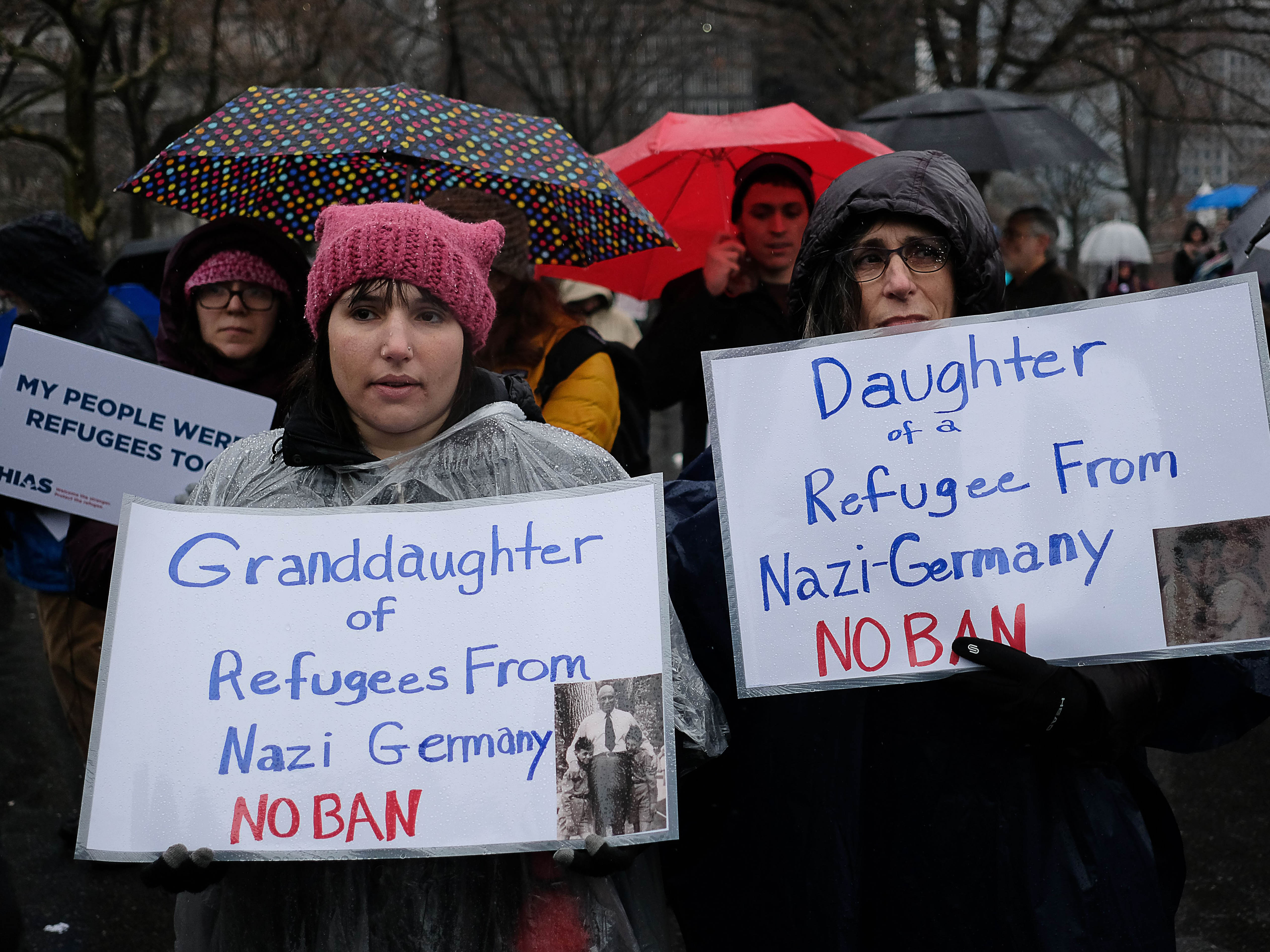In 4th Circuit Ruling, Muslim Ban Suffers Yet Another Legal Blow
By Rachel Nusbaum, HIAS.org
May 25, 2017

Karen Shore holds up a sign in front of the United States Court of Appeals for the Ninth Circuit in San Francisco, California on February 7, 2017.
(JOSH EDELSON/AFP/Getty Images)
On Thursday, the United States Court of Appeals for the Fourth Circuit issued a ruling in the legal challenge to President Trump’s March 6 executive order.
In a strongly worded decision, the court ruled overwhelmingly in favor of HIAS and the other plaintiffs, opting to keep the injunction issued by the lower court largely in place.
The court soundly rejected the government’s arguments that any injuries caused by the executive order should be overlooked because it was acting for reasons of national security.
“Unconditional deference to a government agent’s invocation of ‘emergency’ has a lamentable place in our history...and is incompatible with our duty to evaluate the evidence before us,” the decision states, citing Korematsu, the famous case challenging Japanese internment.
The majority explicitly rejected the government’s use of the pretext of national security to defend an otherwise clearly unconstitutional act from judicial review, writing:
We are likewise unmoved by the Government’s rote invocation of harm to “national security interests” as the silver bullet that defeats all other asserted injuries.The concept of ‘national defense’ cannot be deemed an end in itself, justifying any exercise of legislative power designed to promote such a goal. Implicit in the term ‘national defense’ is the notion of defending those values and ideals which set this Nation apart. Our country has taken singular pride in the democratic ideals enshrined in its Constitution, and the most cherished of those ideals have found expression in the First Amendment. It would indeed be ironic if, in the name of national defense, we would sanction the subversion of one of those liberties which makes the defense of the Nation worthwhile.”
The court rejected the government’s assertions that the ban was motivated by national security goals rather than religious discrimination:
“The Government’s asserted national security interest in enforcing Section 2(c) appears to be a post hoc, secondary justification for an executive action rooted in religious animus and intended to bar Muslims from this country. We remain unconvinced that Section 2(c) has more to do with national security than it does with effectuating the President’s promised Muslim ban.”
“When the government chooses sides on religious issues, the inevitable result is hatred, disrespect and even contempt towards those who fall on the wrong side of the line,” the opinion states. And, they note, “the risk of these harms is particularly acute here, where from the highest elected office in the nation has come an Executive Order steeped in animus and directed at a single religious group.”
As one of the plaintiffs in the case, HIAS applauded the court’s ruling.
“The groundswell of public protest against the bans has been inspiring and unrelenting. The people have spoken, as has the judicial branch,” said Mark Hetfield, president and CEO of HIAS. “The courts have reaffirmed that HIAS' challenge to this unconstitutional order will likely succeed, and communities across the country continue to stand up against the Muslim ban.”
“The American Jewish community owes its very existence to America’s willingness to welcome refugees and immigrants of all faiths. Many of our own families arrived in America seeking freedom from religious persecution. We cannot now be silent—we will continue to fight for the values that truly make America great,” Hetfield said.
With the Ninth Circuit due to weigh in at any time, the case may ultimately wind up before the Supreme Court.



